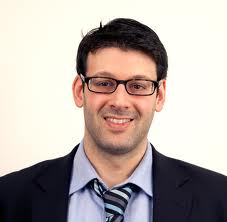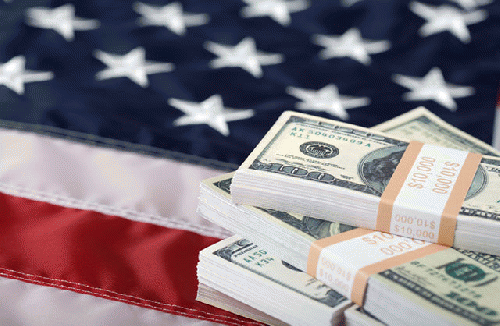Executive Interview Editor Josh Caplan recently spoke with Dr. Lee Drutman of the Sunlight Foundation to talk about the DISCLOSE Act and the role financial transparency in campaigns.
Georgetown Public Policy Review: What is the DISCLOSE Act, and what does it have to do with Citizens United and the current campaign finance system? Does the DISCLOSE Act go far enough to reach its goals, or should more be added to the current bill (H.R. 4010/S. 3369)?
Dr. Lee Drutman: Let’s start with Citizens United…
The decision cleared the way for corporations and unions to advocate directly on behalf of one candidate or another, though not to give directly to candidates or coordinate directly with candidates. They could only provide independent expenditures. This, in turn, led to the creation of super PACs, which could collect money from multiple individuals and organizations for a common “independent” purpose. It also allowed 501(c)4 “social welfare” organizations, 501(c)5 labor unions, and 501(c)6 trade associations to advocate directly for or against candidates for the first time (as long as they did so independently).
Super PACs do have to disclose contributions and spending. However, since these 501(c) organizations are not considered political committees by the Federal Elections Commission, they never have to disclose their donors, and only have to disclose very limited information about their political spending. As corporations and wealthy contributors have realized they can give money secretly, spending has increasingly shifted to 501(c) groups this election cycle.
This poses a problem. Increasingly, more and more campaign funding and spending is secret. The public doesn’t know who’s doing the contributing, and who’s doing the spending. It’s like we’ve gone back to the pre-Watergate era when wealthy donors would provide bags of unmarked cash to their favorite politicians and nobody would know but for them and the politicians.
The DISCLOSE Act would shine a light on the currently secret campaign activity. As Sunlight’s Lisa Rosenberg explained on our blog: “If enacted, the DISCLOSE Act would require corporations, unions, super PACs and other secretive nonprofits to report within 24 hours of making a campaign expenditure of $10,000 or more. The names of donors who give $10,000 or more to the organization would be made public, but donors could remain anonymous by specifying that their donations to the organization were not to be used for campaign purposes.”
The DISCLOSE Act goes far enough and meets its goals.
GPPR: Critics of the DISCLOSE Act argue that being forced to disclose donors would have a chilling effect on political speech and that some speech is better made anonymously. For example, the Federalist Papers were published behind obvious pseudonyms. Is this a valid concern? If so, what can be done to reduce the impact?
LD: In arguing against DISCLOSE, Senator Mitch McConnell (R-KY) cited NAACP v. Alabama(1958), in which the Supreme Court kept Alabama from forcing the NAACP to name its donors, as the proper analogue. The Senator from Kentucky has anachronistically argued that expanding campaign finance disclosure rules will lead to “alarming harassment and intimidation of Americans actively engaged in the political process.”
A bit of history: In 1950s Alabama, civil rights supporters faced genuine threats of lynching, and local law enforcement could not be expected to come to their defense. In some cases, police were themselves the harassers. Is McConnell seriously suggesting that the donors he seeks to protect are the equivalent of the civil rights patrons of the 1950s – that they are supporting a cause so politically unpopular that they are risking their lives to support it? That they cannot count on the legal protections against harassment and intimidation afforded to all citizens? If this is so, should like-minded members of Congress then be protected by the anonymizing behind-the-black-curtain voice modulation usually reserved for whistleblowers the next time they take to the Congressional floor, because their ideas need that much protection?
One can make a case that under certain extenuating circumstances, there are good reasons to protect unpopular anonymous speech (as in, say, 1950s Alabama). But we ought to be very careful about this. Do corporations and wealthy donors spending $10,000 to support/oppose major party candidates really need this protection to speak freely?
Perhaps it was Justice Scalia who put it best in Doe v. Reed: “Harsh criticism, short of unlawful action is a price our people have traditionally been willing to pay for self-governance.’’ A society that “campaigns anonymously” he went on to note, “does not resemble the Home of the Brave.” Let’s remember: the Declaration of Independence wasn’t signed by anonymous.
GPPR: Justice Scalia has endorsed disclosure by arguing that when a voter knows who is behind an ad, they will judge for themselves the value of the message. Do you believe that voters will investigate the backers of ads to determine their legitimacy, and will this information change how they internalize the ad’s message? What is the difference between a group spending $50 million on ads and disclosing their donors and a group spending the same amount and not disclosing?
LD: True, most voters don’t watch these ads all that closely or pay that much attention to who is behind it. But for the few who do, it can make a difference. Imagine: If Nabisco told you that eating three Oreos a day lowered cholesterol, you’d be skeptical. If the Harvard Medical School released a study with that conclusion, would you feel the same away about it? Or: you might want to know whether Nabisco funded the study.
More broadly, voters need to know where candidates are getting their money. Imagine you saw a bunch of ads attack a candidate from a group called “Americans for Fairness in Banking.” Now imagine that you learned that “Americans for Fairness in Banking” is an association of payday lenders fighting regulation and had just given $50 million to said candidate’s opponent. How would that change your opinion?
An additional consideration is the backlash effect. One thing we know from political science research is that voters dislike negative ads, and that negative ads can generate backlash against candidates who support them. That’s why candidates like letting independent groups do their attacking. They can get all the benefits of attack ads, without the backlash effect. If voters knew where the ad was actually coming from, they might be more likely to develop the appropriate backlash against that organization or candidate. This might change the dynamics of the campaign, and perhaps we’d see less negative advertising overall.
GPPR: Is the DISCLOSE Act a final goal or is it one step of many to reform the role of money in the elections? If it is one step of many, what is the final goal, and how do you think that goal will be reached?
LD: DISCLOSE Act is a small step, but an important one. Ultimately, the ideal would be a political system where elected officials are not overly dependent on wealthy interests with a major financial stake in public policy outcomes, and lawmakers can make decisions that reflect the interests of constituents more broadly. This, like all goals of perfection, is an asymptote, but we could certainly be much, much closer to it. Like all political change, it will take sustained public outcry against the status quo. But information is power, and the more we know about who our elected officials depend on to get elected, the more we as citizens will be empowered to hold our representatives accountable.
For more information about the DISCLOSE Act, please see Alex Engler’s must-read post for GPPReview.
 Dr. Lee Drutman is the Senior Fellow at the Sunlight Foundation. He is also an adjunct professor of political science at Johns Hopkins University and the University of California. Dr. Drutman has also worked as a research fellow in Governance Studies at the Brookings Institution, a senior fellow at the Progressive Policy Institute, an American Political Science Association fellow in the office of Sen. Robert Menendez (D-NJ), and a staff writer at the Philadelphia Inquirer. His writing has been published in the Los Angeles Times, Slate, Politico, the Providence Journal, the American Prospect, and Miller-McCune.
Dr. Lee Drutman is the Senior Fellow at the Sunlight Foundation. He is also an adjunct professor of political science at Johns Hopkins University and the University of California. Dr. Drutman has also worked as a research fellow in Governance Studies at the Brookings Institution, a senior fellow at the Progressive Policy Institute, an American Political Science Association fellow in the office of Sen. Robert Menendez (D-NJ), and a staff writer at the Philadelphia Inquirer. His writing has been published in the Los Angeles Times, Slate, Politico, the Providence Journal, the American Prospect, and Miller-McCune.
This interview was conducted electronically.
Established in 1995, the Georgetown Public Policy Review is the McCourt School of Public Policy’s nonpartisan, graduate student-run publication. Our mission is to provide an outlet for innovative new thinkers and established policymakers to offer perspectives on the politics and policies that shape our nation and our world.

2 thoughts on “Campaign Disclosure in the Super PAC Era: An Interview with Dr. Lee Drutman”
Comments are closed.